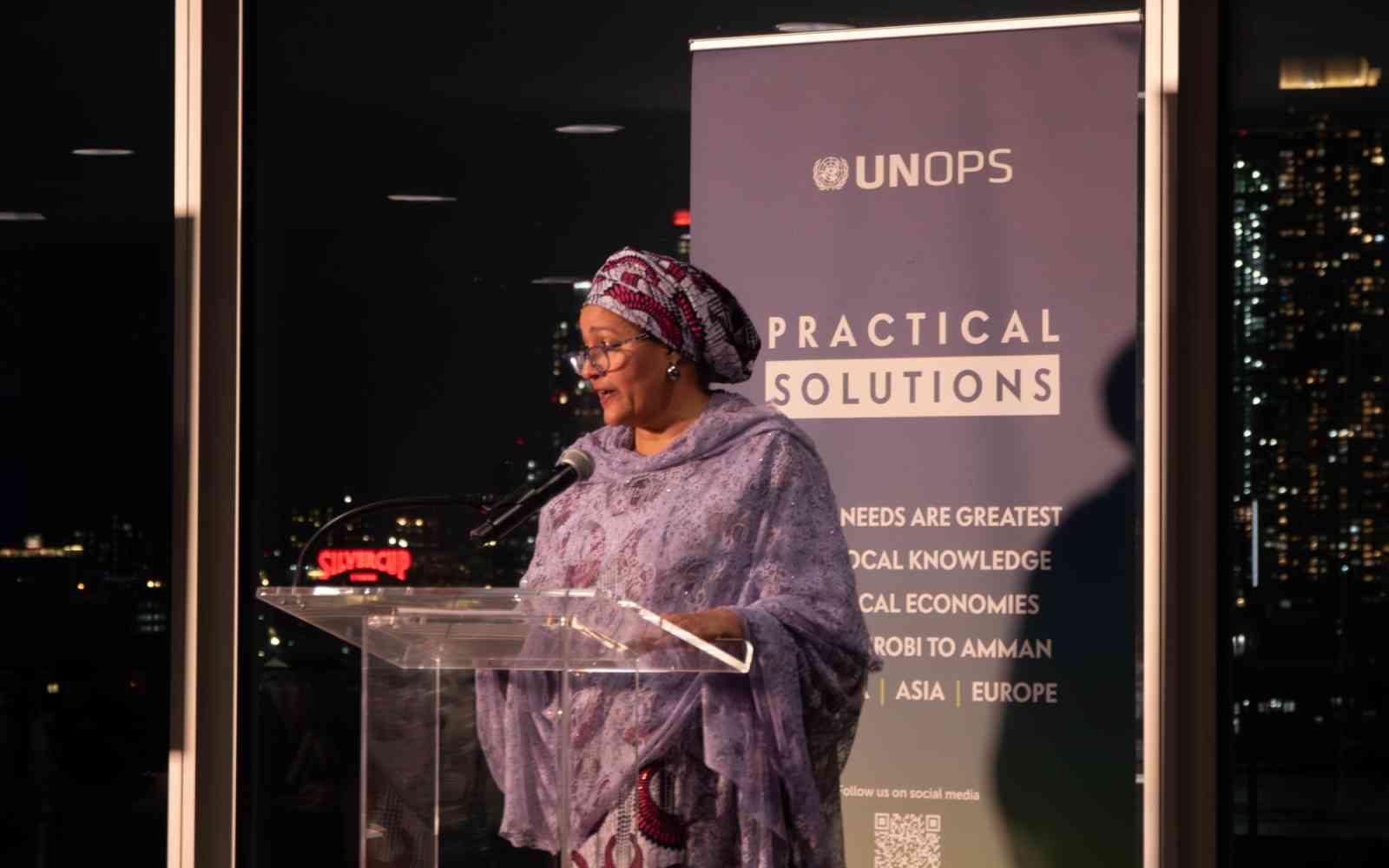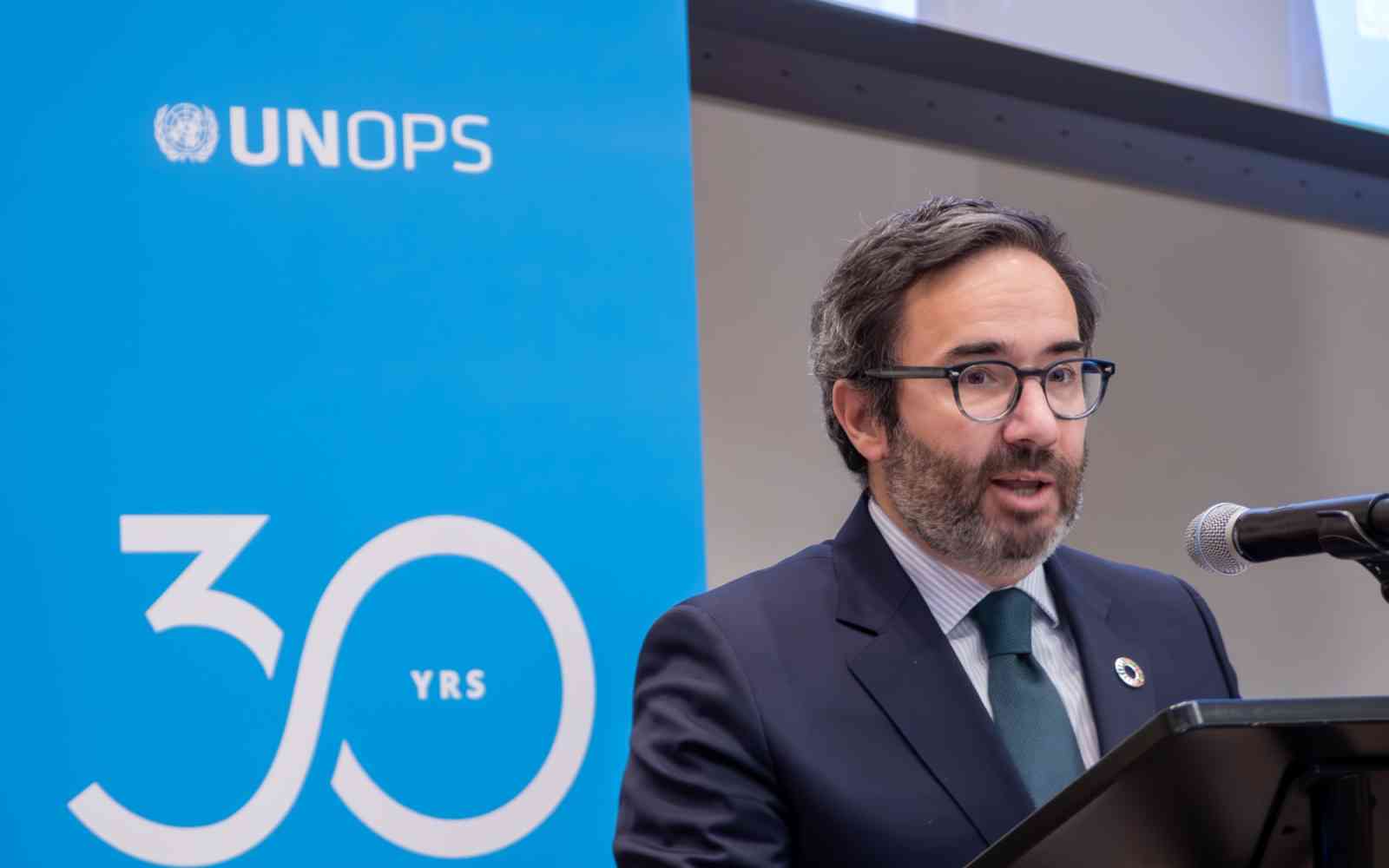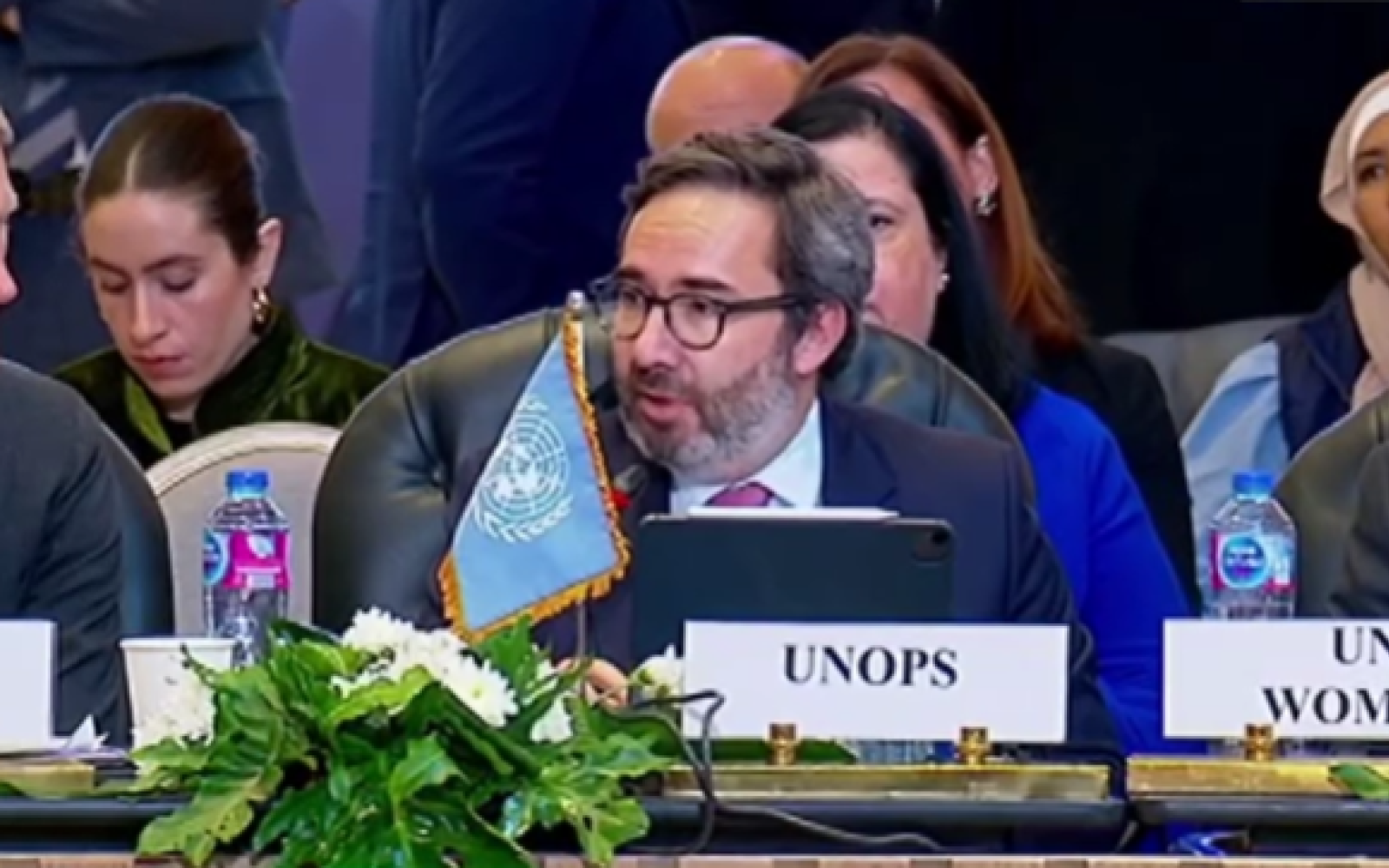The United Nations Office for Project Services (UNOPS)
Statement to the First Regular Session of the Executive Board 2021
Statement by Grete Faremo, Under-Secretary-General and Executive Director of UNOPS, to UNDP/UNFPA/UNOPS Executive Board First Regular Session – 4 February 2021
Remarks given by Honoré Dainhi, Director, Regional Portfolios
Madam President,
honourable members
Once again, it is a pleasure to engage with you. And I would like to extend a warm welcome to the new members of the Executive Board.
COVID-19
COVID was the dominating reality of our lives in 2020. I want to start by extending my heartfelt condolences to those who have lost friends and family.
At UNOPS, we have sadly lost eight colleagues to this devastating pandemic: Four members of UNOPS personnel and four colleagues who worked on behalf of our partners.
I am immensely grateful for the dedication of colleagues working in extreme and unpredictable situations, as part of UNOPS global response. We were quick to adjust to this reality, and did so at scale. Last year, UNOPS covid response and recovery projects totalled nearly $900 million dollars.
I already shared numerous examples of this work with you. Allow me to share some more:
- Procuring and delivering medical supplies and equipment in Libya,
- Expanding testing capacity and managing medical waste in the Gambia.
- Delivering medical supplies, expanding testing capacity and helping mitigate the socio-economic impact of the pandemic in Myanmar
- Supporting the procurement of drugs, medical supplies and equipment in Nicaragua.
This year, the scale and urgency of the task at hand remains unprecedented. As we speak, immense vaccination exercises are being rolled out. Again we need action, on the ground, where it matters most. As ever, UNOPS stands ready to support.
Strategic Plan
Partners have appreciated UNOPS ability to pivot our operations, to provide solutions from emergency response to prevention, from logistics to reaching vulnerable communities in fragile settings, especially those in ‘hard to reach’ areas.
Estimates suggest that UNOPS total delivery in 2020 is $2.2 billion; and new agreements signed last year with our partners exceed $10 billion.
We are humbled by the increased demand for our services in the coming years. It demonstrates the continued relevance of our mandate, capacity and business model. UNOPS is a demand driven organization. We are an operational entity, not a programmatic one. We deliver projects for a fee. We take pride in understanding and responding to our partners’ needs, to help them achieve their goals.
A significant part of our demand growth relates to support to the government of Mexico, where we help in the procurement of medicines and healthcare equipment to improve public healthcare nationwide. But we also see a growing demand across all regions.
As we develop our Strategic Plan for 2022-2025, the lessons of 2020 (and those of previous years) will be paramount. Our experiences, and the valued inputs from our partners, help us further refine our approach.
The direction set in the QCPR will be essential. We welcome the engagement to date from honourable members, and further engagement to come. Today, I will outline our strategic vision:
Quality infrastructure
With our central mandate in infrastructure, we have strengthened our capability to champion the cause of quality infrastructure. This is key:
- To address and adapt to climate change,
- To protect society with zero tolerance in health and safety, and
- To deliver infrastructure that serves everyone equally.
We know that infrastructure is key to climate mitigation and adaptation.
In Small Island Developing States, such as Saint Lucia, and in countries such as Ghana and Bangladesh, we are supporting governments to improve national infrastructure, building resilience in the face of a changing climate. With governments, the University of Oxford, UNEP and the Global Commission on Adaptation, we are working to create partnerships that help build sustainable, resilient and inclusive infrastructure.
And we intend to scale our help to countries, to deliver on a vision for their future infrastructure, aligned with the 2030 Agenda and the Paris Agreement on climate change.
Public procurement
Now let me turn to procurement.
As COVID-19 continues to wreak havoc around the world, threatening lives and livelihoods and causing the deepest global recession since World War II, countries need to do more with less.
Public procurement offers a significant opportunity here.
- The global expenditure in procurement is estimated to stand at nearly $9.5 trillion.
- Procurement accounts for 15-30 per cent of GDP in many countries.
- And an average of 10-25 per cent of a public contract’s overall value may be lost due to corruption.
We support governments to unlock the huge potential of public procurement, to tackle corruption, ensure fair competition, and build sustainable and resilient supply chains as part of the post-pandemic economic recovery, and beyond.
Our work in this area has grown significantly.
From Guatemala to Mexico to Honduras, we work with governments to gain efficiencies, ensure fair competition and generate extra resources that can drive sustainable development.
By supporting governments to achieve value for money, we can help ensure that more public funding is available to shift to low-carbon economies, implement national development priorities, and accelerate progress towards the SDGs.
Management focus
Distinguished members
With your guidance, UNOPS has grown and matured in recent years. But I would argue that how we have grown is more important. Gender equality has been and remains a priority for UNOPS.
As we speak:
- 46 per cent of our workforce are women, up from 33 per cent at the start of our strategic plan.
- 41 per cent of our senior leadership roles are held by women, up from 36 per cent in the last year alone,
- In the coming months, we should reach the first of our gender goals: overall workforce parity.
We aim to reach parity at all senior leadership levels in the next four years, going beyond UN system wide targets, irrespective of personnel categories and contract modalities. And moving forward, we will ensure a broader, more diverse, and more inclusive approach.
We continue to place great emphasis on managing our assets responsibly. As we gather today, UNOPS is engaging with independent experts to align our minimum operational reserves to the current risk profile of our organization. Our move to automated and centralised treasury and cash management is enhancing financial planning, and helping to provide transparency to our operations and manage financial risks more effectively. Ultimately, we believe that by bettering ourselves we will offer better value to our partners.
Operational priorities
Now I will turn to our operations, where focus on quality remains core to everything we do. We remain resolute in ensuring gender mainstreaming practices are applied across all relevant projects.
- From ensuring infrastructure considers and responds to women’s needs, and that women are involved in infrastructure projects at all levels.
- To making certain that our procurement projects - and those that we advise on - continue to benefit women and other underrepresented groups.
Our enhanced focus on health and safety, through our “Goal Zero” approach, will also continue. This is a critical aspect of our work that is already showing positive results.
Partnerships
By becoming more efficient, we are maintaining low average fees for our partners, which over the last four years have been consistently below 5 per cent. Our COVID-19 response once again demonstrated that stronger partnerships lead to a more effective response. We were able to build on our longstanding partnerships, for example with the European Union or the World Bank, to help countries prepare, respond and recover.
Indeed, the pandemic has served as another reminder, that our biggest challenges can only be addressed if we work together.
Conclusion
2020 will forever be a year marked in history. The pandemic has taught us valuable lessons.
These will guide us, as we finalise our strategic plan for the coming years.
Today, I have shared with you a broad outline of our strategic direction. As always, we stand ready to support our partners, without compromising quality, and in the most difficult situations. I look forward to hearing your views, before I present this in more detail at the Second Regular Session in September.
Thank you.












